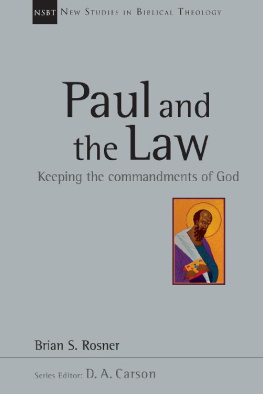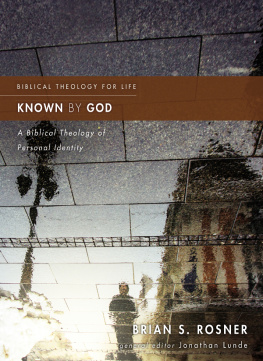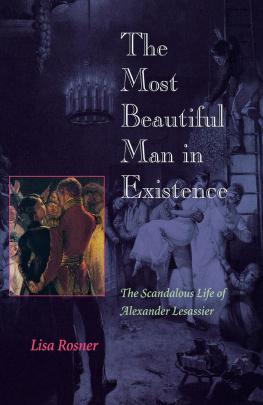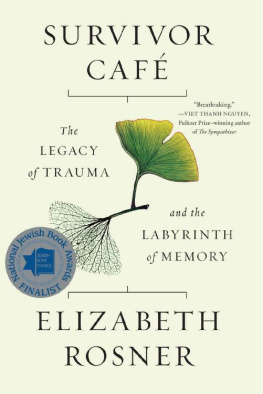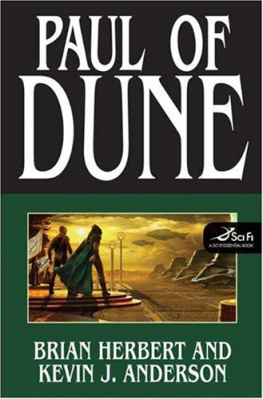Brian S. Rosner - Paul and the Law
Here you can read online Brian S. Rosner - Paul and the Law full text of the book (entire story) in english for free. Download pdf and epub, get meaning, cover and reviews about this ebook. year: 2013, publisher: InterVarsity Press, genre: Religion. Description of the work, (preface) as well as reviews are available. Best literature library LitArk.com created for fans of good reading and offers a wide selection of genres:
Romance novel
Science fiction
Adventure
Detective
Science
History
Home and family
Prose
Art
Politics
Computer
Non-fiction
Religion
Business
Children
Humor
Choose a favorite category and find really read worthwhile books. Enjoy immersion in the world of imagination, feel the emotions of the characters or learn something new for yourself, make an fascinating discovery.
- Book:Paul and the Law
- Author:
- Publisher:InterVarsity Press
- Genre:
- Year:2013
- Rating:5 / 5
- Favourites:Add to favourites
- Your mark:
- 100
- 1
- 2
- 3
- 4
- 5
Paul and the Law: summary, description and annotation
We offer to read an annotation, description, summary or preface (depends on what the author of the book "Paul and the Law" wrote himself). If you haven't found the necessary information about the book — write in the comments, we will try to find it.
Paul and the Law — read online for free the complete book (whole text) full work
Below is the text of the book, divided by pages. System saving the place of the last page read, allows you to conveniently read the book "Paul and the Law" online for free, without having to search again every time where you left off. Put a bookmark, and you can go to the page where you finished reading at any time.
Font size:
Interval:
Bookmark:
1 Possessed by God, David Peterson
2 Gods Unfaithful Wife, Raymond C. Ortlund, Jr.
3 Jesus and the Logic of History, Paul W. Barnett
4 Hear, My Son, Daniel J. Estes
5 Original Sin, Henri Blocher
6 Now Choose Life, J. Gary Millar
7 Neither Poverty Nor Riches, Craig L. Blomberg
8 Slave of Christ, Murray J. Harris
9 Christ, Our Righteousness, Mark A. Seifrid
10 Five Festal Garments, Barry G. Webb
11 Salvation to the Ends of the Earth, Andreas J. Kstenberger and Peter T. OBrien
12 Now My Eyes Have Seen You, Robert S. Fyall
13 Thanksgiving, David W. Pao
14 From Every People and Nation, J. Daniel Hays
15 Dominion and Dynasty, Stephen G. Dempster
16 Hearing Gods Words, Peter Adam
17 The Temple and the Churchs Mission, G. K. Beale
18 The Cross from a Distance, Peter G. Bolt
19 Contagious Holiness, Craig L. Blomberg
20 Shepherds After My Own Heart, Timothy S. Laniak
21 A Clear and Present Word, Mark D. Thompson
22 Adopted into Gods Family, Trevor J. Burke
23 Sealed with an Oath, Paul R. Williamson
24 Father, Son and Spirit, Andreas J. Kstenberger and Scott R. Swain
25 God the Peacemaker, Graham A. Cole
26 A Gracious and Compassionate God, Daniel C. Timmer
27 The Acts of the Risen Lord Jesus, Alan J. Thompson
28 The God Who Makes Himself Known, W. Ross Blackburn
29 A Mouth Full of Fire, Andrew G. Shead
30 The God Who Became Human, Graham A. Cole
31 Paul and the Law, Brian S. Rosner
An index of Scripture references for all the volumes may be found at http://www.thegospelcoalition.org/resources/nsbt
NEW STUDIES IN BIBLICAL THEOLOGY 31
Series editor: D. A. Carson
OF GOD

To Andrew Cameron, Richard Gibson
and Philip Kern
New Studies in Biblical Theology is a series of monographs that address key issues in the discipline of biblical theology. Contributions to the series focus on one or more of three areas: (1) the nature and status of biblical theology, including its relations with other disciplines (e.g. historical theology, exegesis, systematic theology, historical criticism, narrative theology); (2) the articulation and exposition of the structure of thought of a particular biblical writer or corpus; and (3) the delineation of a biblical theme across all or part of the biblical corpora.
Above all, these monographs are creative attempts to help thinking Christians understand their Bibles better. The series aims simultaneously to instruct and to edify, to interact with the current literature, and to point the way ahead. In Gods universe, mind and heart should not be divorced: in this series we will try not to separate what God has joined together. While the notes interact with the best of scholarly literature, the text is uncluttered with untransliterated Greek and Hebrew, and tries to avoid too much technical jargon. The volumes are written within the framework of confessional evangelicalism, but there is always an attempt at thoughtful engagement with the sweep of the relevant literature.
Anyone who follows long-standing debates over Paul and the law, over the use of the Old Testament in the New (especially in Paul), over the cogency or otherwise of various theological systems (e.g. Lutheranism, various forms of covenant theology, dispensationalism), over the origins of the common tripartite classification of biblical law (moral, civil and ceremonial), knows that Pauls understanding of the law lurks behind many other theological debates. Add to the topics already mentioned the relationships between Christian Jews and Christian Gentiles, the unity of the new humanity in Christ, Pauls apparent flexibility when he evangelizes Jews in Jerusalem and Corinthians in Achaia, and, in historical theology, the validity or otherwise of the third use of the law, not to mention the sheer avalanche of books and articles on these and related topics, and one readily perceives why a book on Paul and the law is likely to be of perennial interest.
So what is the distinctive contribution of the volume you are holding in your hand? Brian Rosners strength lies in showing with patience and clarity how the apostle Paul articulates an array of complementary but quite different stances towards the law. That these diverse stances can be integrated he does not deny, but his focus is on letting the crucial passages in Paul speak for themselves. Whether one is persuaded by each exegesis is not as important as listening attentively to the diversity of emphases within Pauls own writings, before attempting the grand synthesis. This is a book to read slowly and appreciatively, a book to ponder.
D. A. Carson
Trinity Evangelical Divinity School
Most scholars come at Paul and the law as interpreters of Romans and Galatians. My background and perspective are somewhat different. Although I have taught the exegesis of both letters, most of my research has been in three different areas: 1 Corinthians, Pauls ethics, and the Jewish background to Pauls letters. With these interests to the fore, I am as much concerned about what Paul does with the law, especially for questions of conduct, as I am with what Paul says about the law.
I have been pondering the subject since the beginning of my doctoral studies in the late 1980s and in one sense this book is an attempt to complete that project. As one reviewer of my published dissertation complained, Paul, Scripture and Ethics does not account for Pauls approach to the Mosaic law.
My goal is to bring some neglected evidence to the discussion and to defend some proposals that sharpen and build on the work of others. I have sought to write something fresh and readable, which examines enough trees to sketch a reliable guide to the wood, along with a map of the broader lie of the land (for subjects related to the law, like justification and ethics).
The books ideas have been test run in a variety of settings and my indebtedness to others is too big to spell out in full. Special thanks are due to Roy Ciampa and Michael Bird, who kindly read and commented on parts of the manuscript. Don Carson, the editor of the NSBT series, provided invaluable guidance from the outset. Phil Duce of IVP was supportive along the way. Eldo Barkhuizens copy-editing was done with painstaking care and diligence. My wife, Natalie, gave encouragement at every stage.
I am especially grateful to Moore Theological College for the privilege of giving the 2011 Annual Moore College Lectures on Paul and the law. The books final test run was in that context. The book was largely completed in my last semester at Moore before moving to Ridley Melbourne, where I am now happily ensconced. It is dedicated to three of my closest Moore colleagues and friends, Andrew Cameron, Richard Gibson and Philip Kern.
The subject of Paul and the law is notoriously complex. Nonetheless, I am convinced that the hermeneutical solution to the puzzle of Paul and the law that this book expounds is exegetically compelling, takes Pauls historical context into account and retains at full strength Pauls twin emphases on the free grace of God in salvation and the demand of God for holy living.
Font size:
Interval:
Bookmark:
Similar books «Paul and the Law»
Look at similar books to Paul and the Law. We have selected literature similar in name and meaning in the hope of providing readers with more options to find new, interesting, not yet read works.
Discussion, reviews of the book Paul and the Law and just readers' own opinions. Leave your comments, write what you think about the work, its meaning or the main characters. Specify what exactly you liked and what you didn't like, and why you think so.

